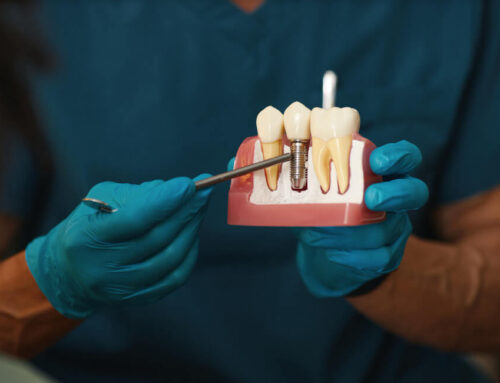Gastroesophageal reflux disease (GERD) occurs when stomach contents flow back into the esophagus and sometimes even reach the mouth. While GERD is most commonly associated with digestive problems, it can also have a significant impact on oral health.
How does GERD affect teeth?
The stomach acids that reach the mouth are highly corrosive and can lead to:
- enamel erosion – gradual loss of the tooth’s protective layer,
- tooth sensitivity to hot, cold, or sweet foods,
- higher risk of cavities,
- aesthetic changes – teeth may appear dull, yellowish, and fragile.
How to protect your teeth?
- Regular dental check-ups – early detection of enamel erosion.
- Gentle oral hygiene – use a soft-bristled toothbrush and fluoride toothpaste.
- Avoid brushing immediately after reflux episodes – acids weaken enamel, and brushing can worsen damage. Rinse your mouth with water or a neutralizing mouth rinse first.
- Use remineralizing mouth rinses – containing fluoride or calcium.
- Work with a gastroenterologist – managing reflux is crucial for protecting your teeth.
Conclusion
GERD is not only a digestive issue but also a dental concern. Preventive care, good oral hygiene, and regular dental visits are essential to minimize its impact on your teeth and gums.
Learn how acid reflux (GERD) affects your teeth and how to protect enamel. Discover Materna Dental’s expert dental care tips.





